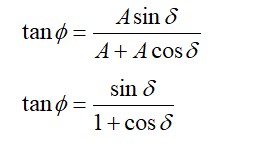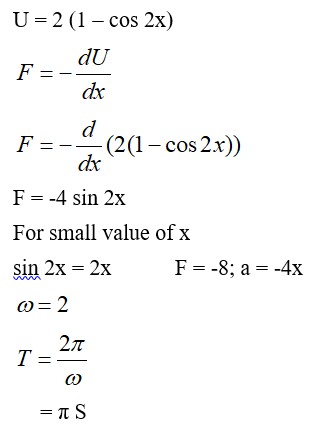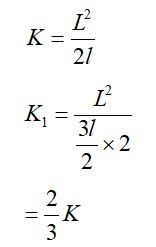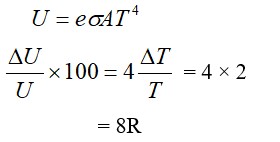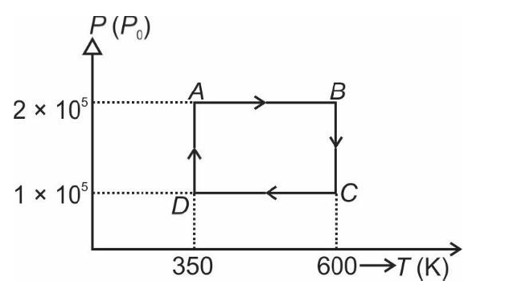The motion of a particle of mass m is given by x = 0 for t < 0 s, x(t) = A sin4 t for 0 < t<(1/4)s(A>0) and x = 0 for t >(1/4) s. Which of the following statements is true?
(a) The force at t = (1/8) s on the particle is –16π2 A m.
(b) The particle is acted upon by on impulse of magnitude 4π2 A m at t = 0 s and t = (1/4) s.
(c) The particle is not acted upon by any force.
(d) The particle is not acted upon by a constant force.
(e) There is no impulse acting on the particle.
The motion of a particle of mass m is given by x = 0 for t < 0 s, x(t) = A sin4 t for 0 < t<(1/4)s(A>0) and x = 0 for t >(1/4) s. Which of the following statements is true?
(a) The force at t = (1/8) s on the particle is –16π2 A m.
(b) The particle is acted upon by on impulse of magnitude 4π2 A m at t = 0 s and t = (1/4) s.
(c) The particle is not acted upon by any force.
(d) The particle is not acted upon by a constant force.
(e) There is no impulse acting on the particle.
This is a Multiple Choice Questions type Questions as classified in NCERT Exemplar
Answer- a, b, d
Explanation – x=0 for t<0s
X (t)=Asin4 for 0
X=0, for t>1/4s
For,0
Acceleration will be, a= dv/dt=-16 Asin4
At t= 1/8 s, a (t)=-16 Asin4 =-16 A
So force F =ma =-16 Am
Impulse = change in linear momentu
Similar Questions for you
From A to B the process is isobaric

= W = 2 × R (600 - 350)
= 500 R
Taking an Exam? Selecting a College?
Get authentic answers from experts, students and alumni that you won't find anywhere else.
On Shiksha, get access to
Learn more about...

Physics NCERT Exemplar Solutions Class 11th Chapter Five 2025
View Exam DetailsMost viewed information
SummaryDidn't find the answer you were looking for?
Search from Shiksha's 1 lakh+ Topics
Ask Current Students, Alumni & our Experts
Have a question related to your career & education?
See what others like you are asking & answering


